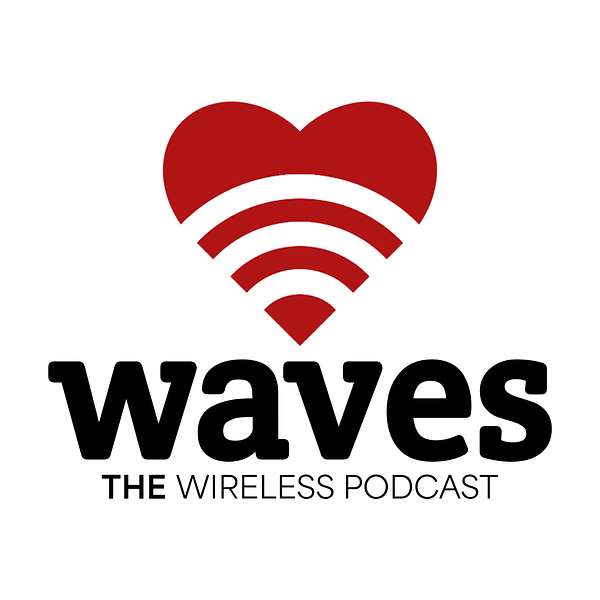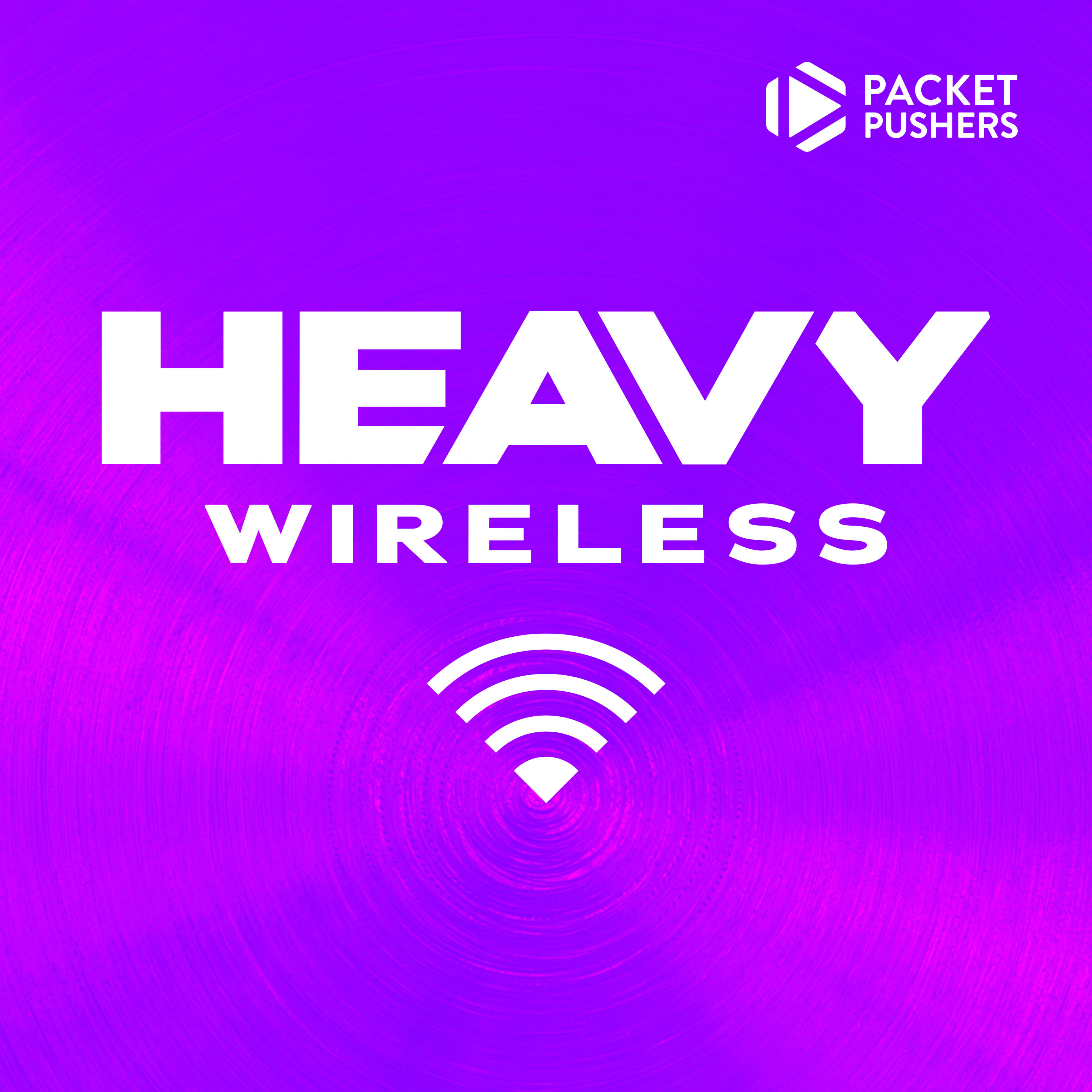
Waves with Wireless Nerd
Join me for a weekly look into what's making waves in tech and the wireless industry! What's new? What's now? What's next?
Waves with Wireless Nerd
🚨Special Coverage: Universal Service Fund Under Siege: Exploring the Federal Ruling's Impact on E-Rate. Rural Communities, Educational Equity, and Digital Connectivity
Is the future of affordable telecommunications in jeopardy? This episode unravels the critical implications of a recent federal appeals court ruling that could disrupt over $2 billion in annual funding for the Universal Service Fund (USF). Join us as we demystify how the USF is funded through telecommunications fees and why its programs, such as the Connect America Fund, the Lifeline program, the Rural Healthcare Program, and the E-rate program, are indispensable for maintaining equitable access to digital connectivity and educational resources.
We delve into the far-reaching consequences this ruling could have on closing the digital divide, with a particular emphasis on the E-rate program that provides necessary support to schools and libraries across the United States. As administrators brace for potential upheaval, we'll dissect the complexities of telecommunications funding, exploring how the loss of USF could impact rural and underserved communities. This episode is essential listening for anyone concerned about the future of digital infrastructure and educational equity in the U.S.
Thanks to our sponsors: Helium & meter Networks!
🤑Looking for ways to monetize your network? Check out helium.com!
💡Change everything you thought you knew about networking at meter.com
Hey everybody real quick. Friday, July 26th. Hope everybody's having a wonderful Friday. There was some news that took place this week that I wanted to just jump on real quick and talk about, because if you haven't paid attention to what's happening, I think this is it's important. Maybe not right now because it's likely to be overturned, but in the long run it's a shot across the bow to what's going on right now in the industry, and this was really weird to read, but it looks like. Let me go back here. Let me open up one of these articles so that I don't misquote someone on what I'm reading. But it happened a couple days ago and I think I'm trying to see when it was. It happened January 24th, so two days ago.
Speaker 1:A federal appeals court ruling has thrown more than $2 billion in annual funding into jeopardy. The funding mechanism for USF, the Universal Service Fund in the United States through USAC, was deemed unconstitutional, and so there's an argument. So first let's talk about what USF is and what USAC is, and I'm not going to read from script here. Let's see how well I remember this, and if you're listening or if you see this and you want to correct me, please feel free to, because there's a lot of weird information bumping around in my head. So basically what happens is every time you pay your cell phone bill, every time you pay a landline bill, every time you pay some type of communications bill, there's a fee on there that goes towards the Universal Service Fund. Here's what we're going to do. We're going to ask ChatGPT how does USAC get funded? But basically the Universal Service Administration Company, or Universal Service Administrative Company is funded through the USF.
Speaker 1:The USF itself is financed primarily by contributions from telecommunications providers. And so you get it's on your, it's a wireline and wireless providers interconnected voice over IP. All that comes in. It comes in through pass-through costs, it comes in through all this. All these funds come in right and then, once they come in, the FCC has some oversight there. The FCC determines the overall funding needs of the USF, sets the contribution factor accordingly and it can vary each quarter. Then there's the USAC administration. Usac is the designated administrator of the USF, collects these contributions from telco companies and providers in your broadband bill and they manage the distribution of these funds.
Speaker 1:Now, once the funds come in, it goes to a whole bunch of really important places. Rest assured they're very important. Connect America Fund supports the deployment of broadband in high-cost areas. So you've got the Digital Divide is directly funded by the USF. You've got the Digital Divide is directly funded by the USF. You've got the Lifeline program, which used to be so that people who couldn't afford to get phones inside their houses. This program helped people get phones inside their houses and that was then transitioned into cell phones and mobile devices. You've got the Rural Healthcare Program supporting telecommunications and broadband service in rural areas. All those are important.
Speaker 1:But there's one that's extremely important that now I'm sure there are administrators freaking out everywhere, and that's the E-rate program. The federal E-rate program is funded by the USF. If the USF stops getting money and it's deemed that it is non-constitutional or unconstitutional, however you want to say it correctly then it creates an issue. If the USF quits receiving funding, then E-rate is a jeopardy. I can't explain how big that is if you're not in education, but what essentially will happen is the funding and discounts to schools and libraries across the United States would get cut for affordable telecommunications infrastructure programs, broadband, all of that, programs, broadband, all of that. And that's very, very scary, because I can't imagine a school district not using E-rate in the United States and maybe look devil's advocate right. Maybe what's happened is we've become so reliant on E-rate that the districts can't function on their own. Okay, well, I don't know that. People who are not in that space understand the economics of how that works. Essentially, school districts receive a certain amount of money per student to go into their E-rate funds so that they can purchase equipment and services at a very highly offset rate and without E-rate. Down here in South Texas I don't know many districts that have the funds to be able to operate their information technology networks without E-Rate. I don't know of any district that I can think of that, if E-Rate went away, would be in a suitable place for them to continue to invest in technology.
Speaker 1:This is a big deal. This is a really, really big deal. I don't like to pop on the mic during the week unless I think it's pretty impactful, but the Education Week and the EdTech Allison Klein ran an article. It says billions of dollars for EdTech in schools are now in jeopardy. And here's why the USF, which finances the E-Rate program for K-12, broadband connectivity and critical infrastructure, is amounting to the misbegotten tax and therefore is unconstitutional, according to the Fifth US Circuit Court of Appeals on 9-7 on July 24. And I will reemphasize what she said it's hard to overstate the importance of E-rate, the largest federal investment in education technology, to teaching, learning and basic school operation. This is a big, big deal. We're in a post-textbook world where the vast majority of students in the country are using devices in the classroom, and that was a quote from Doug Levin, the co-founder and national director of K-12 Security Information Exchange. On top of that, internet access is required to route the buses, operate physical security systems, serve lunches to kids. The decision could lead to cutting off broadband access for tens of millions of students, educators and library patrons.
Speaker 1:The court majority said the program is laudable but not legal. Basically, what they're saying, if I understood this correctly, is that this is a tax that's been pushed down to everybody in the United States and the money that's coming in is money that's coming in from broadband providers and telco providers and it's something that we shouldn't have to be paying to user services. We're paying into usf um, we're paying into a federal program without, without voting on it, without you know all this information, you know all the information being available, and so people are looking. You know some, some groups of people are looking at this going. We shouldn't be doing that. We shouldn't be giving up some of our money for something that goes to a federal program without there being some type of uh, I guess some type of governmental research involved. Either way, it's, um, it's. This is tough. The usf, which, financed through fees on certain telecommunications providers, funds four different programs aimed at providing telecommunications services, including broadband. This in 2022, the program dispersed more than $7.4 billion $2 billion just in E-rate alone.
Speaker 1:So I would urge you to contact your lawmakers, contact whoever you can, and find out if there's a way. You know, hopefully this gets overturned and reversed shortly, just because this is affirming the constitutionality of the USF. That's what you got to talk to them about. If you know anyone in power, reach out to them and have a conversation with them, because this could be very, very bad for a whole lot of people. Anyway, that's all I wanted to do Just jump on real quick and read a little bit and inform you all. If you know my wonderful listeners, definitely you know this isn't Wi-Fi, but this is something that affects a whole lot of people. So watch for information on USF, Watch for information on USAC and have yourself a wonderful weekend.
Podcasts we love
Check out these other fine podcasts recommended by us, not an algorithm.

Clear To Send
Rowell Dionicio and François Vergès
Heavy Wireless
Packet Pushers
RUCKCast
RUCKUS Networks
